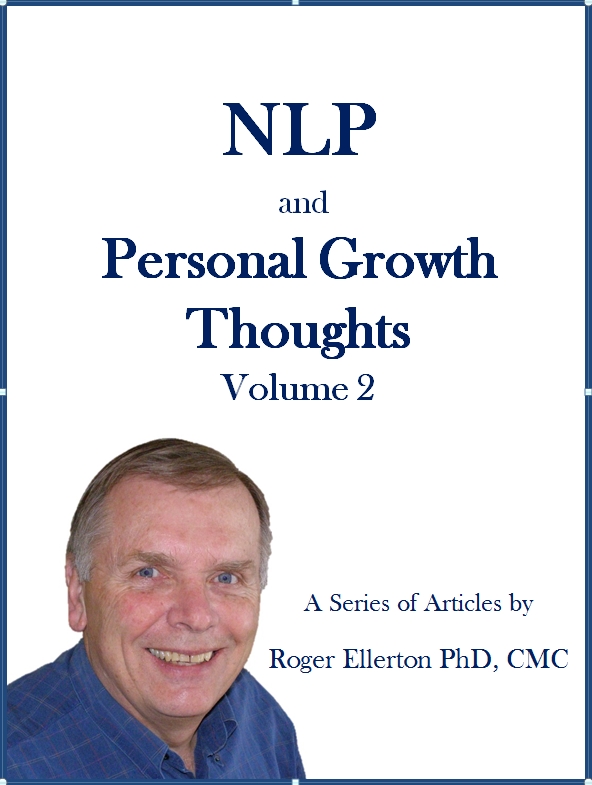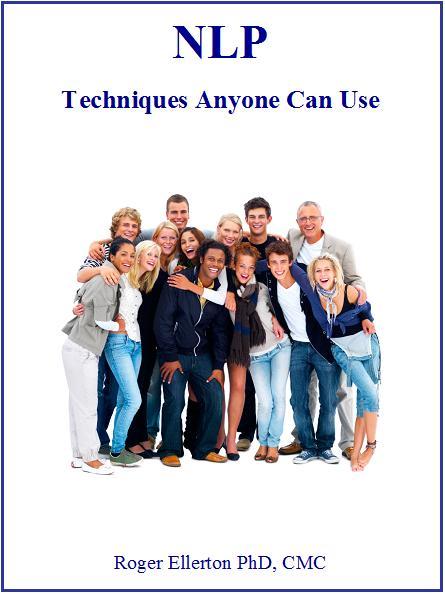Have the Career that Reflects Who You Are
By Roger Ellerton Phd, ISP, CMC, Renewal Technologies Inc.
This article may not be republished without written permission from Roger Ellerton/Renewal Technologies Inc. If you republish this article without permission, you will be in violation of copyright law and sent an invoice. You may share this and other pages with your friends by linking directly to this page from your website or blog.
Although we may have a great deal in common with our family members and friends, each of us has our own personality and we see and experience the world around us differently. We may differ in our choice of fashion, living conditions, ideal mate or career. Our desires are determined by how we filter our experiences. These filters, which operate at an unconscious level, have been shaped by the rules or lack of rules in our family of origin, the schooling we received, the presence or absence of religious teachings, our successes and failures and by the influential people we have met.
There are many different models that explain or clarify our motivation. One model that I have found particularly useful comes from neuro-linguistic programming (NLP) and is referred to as the LAB Profile® (short for the Language and Behavior Profile) - a person's language and behaviours are highly correlated and knowing one allows us to predict with some accuracy the other. The LAB profile is based on 13 meta programs that are deeply rooted unconscious mental programs that filter our experiences and guide and direct our thought processes, resulting in significantly different behaviours from person to person. They define typical patterns in the strategies or thinking styles of an individual, group, company or culture. Thus they are very useful in hiring the best candidate and equally useful for an individual to choose a career path that is in alignment with his inner desires.
Unconscious Motivation
Your meta programs work at an unconscious level and form the basis for your motivation. This article will focus on three motivation traits that play a major role in your enjoyment and success of your career choices. If you find that you relate equally to both extremes of a meta program, then you are most likely balanced for that meta program. Being balanced, at one extreme or the other is neither right nor wrong as all three have their advantages. Just be aware of the influence your unconscious choices have on your life, as these unconscious choices reflect how you have been conditioned to live life. If these choices do not suit you, you can change them once you are aware of your choices. Just as you have made your choices, others have done so as well and may live and see the world differently than you do. To have a meaningful interaction with these people, you need to be flexible in your communication, as illustrated in the descriptions of the following meta programs.
1. Toward - Away From
Motivated by goals and achievements or by issues and problems to be resolved or avoided.
Toward: These people are focused on their goals. They are motivated to have, achieve and attain. They tend to be good at managing priorities but sometimes have trouble recognizing what should be avoided or identifying problems. They are clear in terms of what they want. The following words can be used to identify or motivate these people: accomplish, attain, get, achieve, rewards, goals. An ideal type of job for this person would be one that is outcome oriented; e.g. sales manager. These people would make poor proofreaders, as they are not looking for mistakes.
Away From: People in this group notice what should be eliminated, avoided or repaired. They are motivated when there is a problem to be solved or trouble in need of fixing. They are good at troubleshooting, solving problems and pinpointing possible obstacles because they automatically see what is wrong. You can motivate or identify this type of person with the following words and phrases: avoid, steer clear of, prevent, eliminate, solve, get rid of, fix, prohibit. An ideal career would be one that involves identifying problems - proofreading or quality assurance. Their management style is crisis management.
2. Internal - External
Assess performance through own internal standards and beliefs or through information and feedback from external sources.
Internal: These people have their own internal standards and make their own judgments about the quality of their work. They have difficulty accepting other people's opinions and outside direction. They may be difficult to supervise, as, they will question the judgment of the person giving negative feedback on something they believe they did well. Since they do not need feedback on their own progress, as managers, they tend not to give feedback to others. You can motivate this type of person with the following phrases: you know what's best, only you can decide, it is up to you, I need your opinion. Their ideal job is one in which they can make their own decisions.
External: People in this group need to receive outside direction and feedback to stay motivated and to know how well they are doing. Without external validation, they may feel lost or have difficulty starting or continuing an activity. They are motivated by phrases such as: according to the experts, others will think highly of you, you will be recognized for your efforts. These people make good customer service representatives.
To identify whether a person is Internal or External, ask them a question such as, "How do you know you have done a good job?"
3. Options - Procedures
Prefer to keep options open and explore alternatives or feel most comfortable following established procedures.
Options: People in this group are motivated by the possibility of doing something in an alternative way. They are the type of people who will develop procedures and not follow them. They enjoy breaking or bending the rules. Exploring new ideas and possibilities is of great interest. They may begin a new project and not feel compelled to finish it. The following words can be used to motivate or identify these people: alternatives, break the rules, flexibility, unlimited possibilities, expand your choices, options. These people do well in situations that require solutions or alternatives to current systems - fashion designing, process re-engineering.
Procedures: These people like to follow established rules and processes. Once they understand a procedure, they will follow it repeatedly. They have great difficulty developing new processes and feel lost without a clearly defined procedure. They are more concerned about how to do something than about why they should do it. Bending or breaking rules is sacrilege! They can be identified and motivated by words and phrases such as: correct way, tried and true, first/then, lastly, proven path. Positions suited to these people would be bookkeeper or commercial airline pilot.
During the job interview
Can the above information be used during a job interview? Absolutely!
During the interview, listen to the words used by the interviewers, especially your potential supervisor. You may notice a question is focused on fixing something (away from). Or in response to one of your answers, the interviewer may say "I don't put much stock in what the experts say."(internal). Or, the interviewer may talk about how the position gives you a great deal of freedom (options) in carrying out the work.
When it's your turn to ask questions, ask your potential supervisor questions that reveal his/her preferred way of working. For example, "For this position, is it critical to follow existing procedures or are you looking for an ability to present new innovative ideas."
Be aware that a particular job may indicate a specific set of meta programs, however the culture of the organization or the supervisor's approach may override these. During the interview it is critical that you assess the working traits of your potential supervisor to ensure that the two of you can work together in a synergistic manner.
To learn more about Meta Programs, also known as the Lab Profile, consider Shelle Rose Charvet's book Words that Change Minds: The 14 Patterns for Mastering the Language of Influence.
Author: Roger Ellerton is a certified NLP trainer, certified management consultant and the founder and managing partner of Renewal Technologies. The above article is based on his book Live Your Dreams Let Reality Catch Up: NLP and Common Sense for Coaches, Managers and You.
Copyright © 2007 Renewal Technologies Inc. All rights reserved.








